 Greg J wrote to some people: In the upcoming Surge kids' classes I aim to track cash and character. I'm asking people, what principles of money & possessions stewardship ought kids learn? Did your kids get paid for chores, get an allowance, pay penalties (or lose from a quarter jar for such things as disrespecting siblings), have a bank account, or other interesting financial arrangements? I picked up a couple of useful books at the library aimed at kids but of course therefore all the more foundational for older ones. Ron Blue, Judy Blue, Jeremy White: Your Kids Can Master Their Money. This book from Focus on the Family has lots of scripture references. Joline Godfrey: Raising Financially Fit Kids. Godfrey has interesting lists. For example....
And that's just the first two chapters. So, any stories of kids & money? Or will you save those for sermons & the blog? -- Greg J 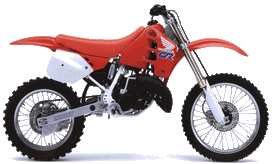 E Reiss wrote: I'm not sure they are stellar examples of good parenting related to money, but I appreciated how my folks handled this. From an early age, I would do little jobs and get paid for them... a very normal chore / allowance kind of setup. But like Greg, I grew up on a farm, so there was always work to do it seemed. When I turned 14 I was scheming on a motorcycle (you could get a cycle license at 14 in Oklahoma), but a new Honda 125 dirt bike that was modified to be street legal cost $1500! That year we had bailed an unusual amount of hay and my dad and his cousin had about 1000 round bales to move and stack from various fields. They offered to pay me $1 a bale to move them with a front end loader on a tractor. 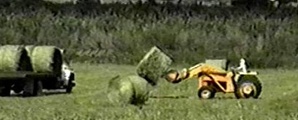 So move them I did. 10 hours a day for the better part of 2 months. And I have to say, anything repetitive and mechanical you do more than 960 times, you get pretty good at. At about bale 150 I could "scoop" the bales with a single fluid motion, combing the tilt and lowering / raising of the loader arm without slowing down - and without damaging the bale of hay. Things went faster from that point. My dad's proposal was that if I could get to 1000, he would help with the rest. But he and his cousin felt like I did a good job and so they paid me $1700 for the job, my dad still kicked in $500 for the motorcycle. I had some extra money for a helmet, tag, title, insurance and gas. 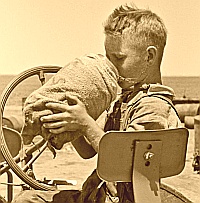 Good lessons, though:
I probably enjoyed that bike as much as any single item I've ever owned. But thinking back, it was the entire journey. The hard work on sweltering summer days. Cold water during a short break that tasted sweeter than anything... dreaming of riding my new motorcycle that I didn't have yet. And then the process of buying it, with that new motorcycle smell lol. ~E 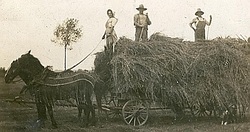 Greg J wrote: E, Let us bale more hay via an e-mail conversation. Hay is a dry subject, heh. It may be a waste of twine, a lost cows, an epistle of straw. But I'm willing to give mower effort. I doubt that anybody in Fairfax county has given as much thought to hay as we two spontaneously reminisced the last few days. But people should consider that a cow needs grass. No hay for winter cow food means no cheese, no ice cream, no Big Macs. No hay means plastic shoes. Making hay is a big deal. In my lifetime hay-making has gone from loose piles handled with pitchforks to car-sized bales handled with machines. I do agree that there's no drink more refreshing on a hot day than that ice water from a jug stashed under a tree. Otherwise my hay experience was not as pleasant as yours, but just as treasured. First, demon-possessed machinery made the little bales--more on that maybe later. Moving the bales was a sweaty job for teenage boys and young men. No one I knew was paid for work for their own dad or relatives, though you could make a few coins per bale from neighbors, tallied from each load on the barn door frame. If the farmer drove the tractor, you had to work fast and hard and accurately. The farmer's daughter might drive, inspiring loaders to stack bales faster and higher! Ladies also tended other summer tasks such as pressure-cooking sweet corn and snap beans, hybrid corn de-tassling, and picking blackberries. For the uninitiated, blackberries grow on thorny branches like rose bushes. Alas, the 600-pound bales you, E, speared with a tractor front-loader were not common until the late seventies in my part of the country. Today's farming is way more efficient than in the fifties, sixties, and seventies, when we manhandled smaller 60-pound bales. Standing on a low trailer or sometimes trotting beside it, we used one or two hay hooks to grab a bale and throw it into place. 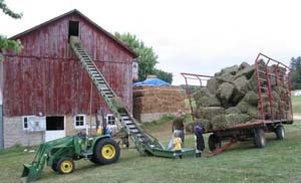 This gent is ok but stacks only two high. Four or six was the norm. Once loaded, the trailer went to the barn. The loaders prayed not to loose any bales on that gully and maybe tied the load down for a precarious voyage. At the barn, someone unloaded bales onto a conveyer that carried the bales three stories up. In the incredibly dusty and steamy barn someone stacked the bales to the roof. Come December, we'd start throwing bales down from the barn to the hungry cattle. A day of haying wasn't complete unless you wrapped your arms around a bale containing bees or a snake. Hot. Dusty. A summer rain out in the field was refreshing. But you knew if it lasted 15 minutes the bales would be heavier, and longer than that and you'd need to leave them a week to dry. I asked two of the Surge kids if they got allowances. I regard chores as chores, and allowances as unearned gifts that help the young learn to save and manage money. The two Surge kids did not get allowances. We shared some solidarity. 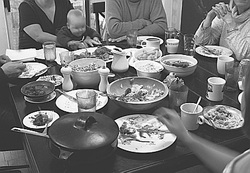 Each farm kid had to work relentlessly hard, so that at some point in their teens that youngster perhaps repaid in labor what their parents had spent. There was no resentment toward parents, because it was clear that everyone we knew was living pretty much hand-to-mouth, but living well. Fresh blackberry pie nicely capped a nightly steak and potatoes dinner. And we ate good tomatoes and peas made by God himself, not plastic substitutes from the grocery. I never heard anyone who regularly trudged through manure every morning whine about any other job, nor arrive late. What I saved from occasional work for neighbors and my own 2-steer herd nicely supplemented a scholarship so I could eat as well as take college classes. Assuming Evangeline doesn't start cultivating your back yard, what monetary relationship do you have in mind for your urban cowgirl? Allowance? Busking at the Metro? Realizing that the best-laid plans gang aft agley, how do you and Karen envision her maturing towards money? 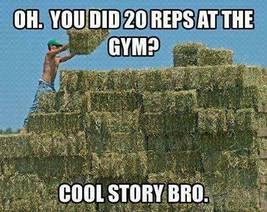 E Reiss wrote: Let me mull and remember and I'll send some stuff on this - we did the smaller rectangular bales too - it was only when I was a teenager that we migrated to the big round bales. I was too young to do too much of the lifting / stacking / of the older bales - but I do know that this about as hard of a day's work as is possible for a human to do :) I do remember being very young (maybe 5-6) and sitting in the back of a pickup with grandpa, cutting the twine and then breaking the rectangle bales into squares and then throwing those out to spread the hay so the cattle could get to it more easily. That was pretty fun actually. Little kids can chuck things, and that this serves useful purpose was icing on the hay cake. I had gloves and a hat and a little holster for my pliers, just like grandpa and dad did. And we did have the barn, with the rectangle bales, slowly being used, so that you could jump off the top row down several levels to the bottom. This was probably 25 feet and that we survived those fearless jumps was probably due to direct divine and angelic intervention on numerous occasions. I don't have a fully formed financial plan for Evangeline, but my dad used to pay me for getting A's on my report card (it wasn't that much... but enough to buy a book or a treat, etc...) and in retrospect, that's not a terrible idea. And surely, if you do well in school, that does correspond to better pay. For me, the guiding idea would be to: work hard and then get rewarded for that. Then instilling principles of tithing and saving a small percentage, with an eye to generosity to folks who may need that. As she gets older I would like to transition that to something she is gifted at, instead of just housework or such. Karen did a lot of gigging as a teenager - and that went into the family "pot" of extra money that they used for various things. I think I said I got an allowance, but that wasn't entirely accurate. I never had that as a younger kid... and as an older teenager, my dad had a farm, my mom had a law office. I did all the laundry, dishes and regular housework... helped out on the farm (mostly Saturday mornings during the school year and a lot of plowing in the summertime) - and did a lot of what was basically paralegal work for my mom around the edges. My dad set me up with a checking account and they put ~$100 in each month. That was a nice move... learning to write a check, manage the account, overdraw it when the consequences for that were small in comparison and you start to understand how this works. The stipend was less than I would have made working elsewhere part-time... but part of that understanding was, as you said, room and board and car insurance and lots of little things I was not on the hook for! My friends and I understood that. Families were in this thing together. I've had a few conversations about the difference in upbringing rural folks experienced, versus the northern VA teenager driving a BMW to school. I get it. We want out kids to have nice things and if you have the money for that, well there you go. No. You're first car ought to be a mess. It should burn more oil than gas. It should have the suspension of a boat and should basically be tank-like in it's ability to hit something and be basically unscathed. It should have a nickname. The Mosquito Fogger. Or the Orange Crush. No Mercedes convertible for 16 year olds! The old farmer in my heart is shaking his head at that one. It may be that those kids have a disconnect related to how life works. It may be that this looks like a blessing, but actually is a curse in disguise. ~E 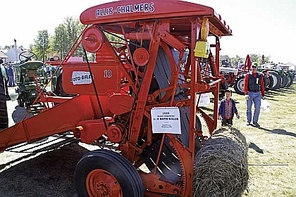 Greg J wrote: There are many advantages to farm life. Farm kids see that weather that is rainy, sunny, windy, hot, or cold, is not a matter of comfort, but of making a living, and neither the farmer nor the president can do anything about the weather; God does the weather. Farm kids see that food and shelter can't be traded for money. If you want food and shelter, you plan and work. Farm kids see their parents sweating in the fields. Farm kids see a hail storm, drought, or virus destroy good work, yet see that you can start over. Any parents can inspire or disgust their kids, often in the same minute. Farm parents can influence their offspring several times per hour, and have the spotlight for many hours. Farm people know that if you are bored on the farm, you aren’t working as hard as you can. You haven't learned to multitask, mulling over determinism while hoeing in the sun. In making hay, a mower cuts the tall grass leaving it to dry in the sun. A rake turns over the resulting hay and pushes it into rows. A baler scoops up each row, crimps and compresses it, wraps it with twine, and kicks out a hay bale. Haying such as I experienced in the 60’s depended on muscle and sweat to move hay bales to a barn or other storage. Haying as E practiced makes smarter use of machinery to load and move. Mowers, rakes, and hay wagons are not significantly different than a hundred years ago. When previously I said "demon-possessed", I refer to the hay baler, specifically the orange Allis Chalmers Roto-Baler that produced 60-pound round bales. You need not take just my word: “The Allis-Chalmers Roto-Baler could easily be one of the most complex farm machines I have ever used/laid eyes on. It requires detailed attention to all the springs, latches, bearings, chains, and belts. If one component is not finely tuned, there is a good chance the machine will not work.” Inside the baler any of a dozen major springs or belts at least once an hour would loosen, slip out of place, or simply break. Twine would tangle. Hay frequently jammed the gears and belts. Fixing the thing often required the farmer to let it run while he threw hay in and watched. Our neighbor Tom summarized, “People think balers are dangerous because farmers fall in. Truth is, after a hot afternoon with a baler, a farmer will just jump in.” 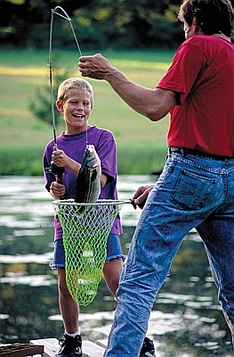 My father and Tom had similar fields and balers, but distinctly different philosophies of management. In fixing a breakdown, Dad would remark on the machine’s sulphurous origins, its eternal destiny, the eventual state of the hay after the cows finished with it, and other basic doctrines. A car axle carried on the tractor was used to pry apart the rollers, poke, and whack. Dad might return to the machine shed to retrieve a spare gear. By contrast, Tom’s tractor or truck carried a fishing rod or two. When confronted with a mechanical puzzle, Tom would say something like, “Well, don’t that beat all,” shrug, take up the fishing rod, and amble over the hill to the nearest pond. In time he’d return, stroke his chin some more, tighten a nut, tap on a gear, start up the now functioning baler, and continue through the field. My brother and I saw that both techniques in a week yielded roughly the same number of hay bales. While not overtly disrespecting Dad, we both chose the way of effortless effort. My brother carries fishing gear with him to this day. Parents and teachers, whom do your kids see working, planning, saving, giving? Mostly athletes and movie stars, I suspect. Do your kids get to see how you respond to troubles? And kids, are you paying attention to what adults do with the resources God has given them?
0 Comments
|
Our Writers:At The Surge we love doing things together... that includes writing a blog! Here are a few of our main contributing authors: Greg JohnsonJesus++ Dwaine DarrahOur fearless leader, Dwaine is the lead pastor at The Surge. His experience in counter terrorism with the CIA prepared him for ministry and he likes dogs and babies even more than E does. EE (short for Eric Reiss) is the Wingman at The Surge and likes dogs, music, Mexican food, his wife Karen and his little girl Evangeline... not necessarily in that order. Archives
June 2024
Categories
All
|
|
|
The Surge Community Church
Meeting Sunday Mornings at The State Theatre in Falls Church, 11:10am! Rebroadcast Available Sunday Evenings with SurgeOnDemand, 7:00pm! |

 RSS Feed
RSS Feed
